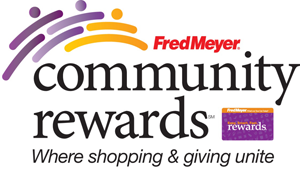Simple and Not So Simple Swaps

Our volunteers share their best strategies for reducing single-use plastic
Okay, you’ve taken the Plastics Pledge and, according to our survey results, you’re doing a pretty darn good job of reducing single-use plastics and improving recycling. You’re working hard to adopt the four major Simple Swaps:
- Swap out that single-use bottled water by bringing your own reusable water bottle
- Swap out that plastic grocery bag by bringing your own grocery totes to the store
- Swap out that plastic cutlery by bringing your own reusable cutlery when you eat on the go
- Swap out that single-use coffee cup and plastic lid by bringing your own reusable coffee mug
Now, let’s think about taking the challenge a bit farther. Let’s swap out some of the single-use plastic in our lives that are a little less obvious.
First, identify a couple single-use plastic items you tend to use a lot. Do you eat a lot of single-serving yogurt? Do you buy single-serving chips for school lunches? How about those plastic produce bags at the grocery store? Pick the thing that you use most and figure out how to swap it out for a non-plastic or reusable option.
We asked our many volunteers who you’ve met around the County hosting our interpretive display to tell us what single-use plastic items they use and what they do to reduce their use. Some of their ideas might just fit your lifestyle, too!
Bulk up on bulk foods! The most frequent answer to the question of what single-use plastic you use the most is, as predicted, food packaging. How to avoid all those tubs and plastic jars? Lots of our volunteers buy in bulk. Dale buys spices, nuts, and beans in bulk. Linda buys her tea in bulk. Ellen buys nut butters in bulk. And she buys blocks of parmesan cheese and grates it herself. And Mae buys dried milk instead of milk in plastic containers.
And don’t forget those cleaning supplies and soaps. Maureen buys those in bulk, too! And in the ‘every bit counts department,’ Joan considers dental floss a triumph of packaging over product, so she buys her dental floss in big dispensers.
And bring your own containers. Those plastic produce bags are easily swapped out for mesh bags available for purchase. Craig brings his own cotton bags for bulk items, too. Some stores allow and even reward you for bringing your own containers to buy their bulk products. Linda reports that the Vinegar and Oil store gives you credit for reusing glass bottles.
Speaking of yogurt, Betty has eliminated those single-serving tubs by making her own yogurt in her Instant-pot. Some of our other volunteers have been resurrecting their latent kitchen talents, too. Dale makes her own guacamole and salsa. Maureen and Betty make their own hummus (recipe below). Ellen makes her own salad dressing. Heidi makes her own crackers and granola. And Susan bakes her own bread. And how about using real lemons and limes instead of those little plastic fruit replicas?
And whatever happened to glass? If you must buy packaged goods, look for glass containers, or paper packaged products to avoid plastics. Some products that are still readily available in glass or paper are salad dressing, pasta sauce, honey, wine (thank goodness), bar soap, vinegars, and soy sauce.
But its summertime and what about all those plastic plant pots? They are NOT RECYCLABLE as you know, so don’t put them in your recycling bins. Ruth reports that Sanitary Service Center in Bellingham does take them to recycle. But you have to drop them off there. If you can’t reuse them yourself, Jan reports that Master Gardeners and Native Plant Society have a bin in the parking lot of the Mount Vernon Extension Center for large size, square pots. You can avoid them entirely by buying plants bare root or in plugs. Joe’s Garden in Bellingham sells some plugs of vegetables. And, of course, you can start your plants from seeds yourself.
That’s not all! Do you have some great ideas to help us all reduce our use of single-use plastic? We’d love to hear them. Comment below or send us an email at This email address is being protected from spambots. You need JavaScript enabled to view it.. And look for us at local Farmers Markets this summer. Stop by to say hi and share your simple swap ideas!
Easy Homemade Hummus
Got 10 minutes? Get out that food processor hiding in the cabinet. This recipe can be adapted to your own tastes by adding more/less of some ingredients and topping with your favorite additions such as roasted garlic, pine nuts, roasted peppers, or whatever suits your fancy. Enjoy and pat yourself on the back for not buying that plastic container in the store.
2 to 4 garlic cloves to taste
¼ cup water; additional to thin at end to taste
¾ cup tahini
¼ cup fresh lemon juice, ~ 1 large lemon or 2 small
1 teaspoon salt (substitute garlic salt if you love garlic)
¼ cup ground cumin
15.5 ounce or ~1¾ cup chickpeas, rinsed and drained
Add garlic cloves to food processor and pulse until minced. Add ¼ cup water, tahini, lemon juice, salt, and cumin. Puree for about one minute until texture becomes light and smooth (pourable, not thick and pasty). Add chickpeas and puree three minutes until very smooth. You can add more water by the tablespoon to thin the consistency as you like. Store in refrigerator in sealed container for one week.
******
The Skagit Plastic Reduction and Recycling Coalition is a partnership between Friends of Skagit Beaches, Skagit County Solid Waste, and the Washington Department of Ecology. We are working to educate Skagit County residents on the issues of plastic waste in the environment and involve them in taking action to avoid single-use plastics and recycle plastic right.
The Friends of Skagit Beaches Plastics Project is funded by a grant from the Washington Department of Ecology with additional support from Skagit County Solid Waste Division.
By accepting you will be accessing a service provided by a third-party external to https://skagitbeaches.org./


